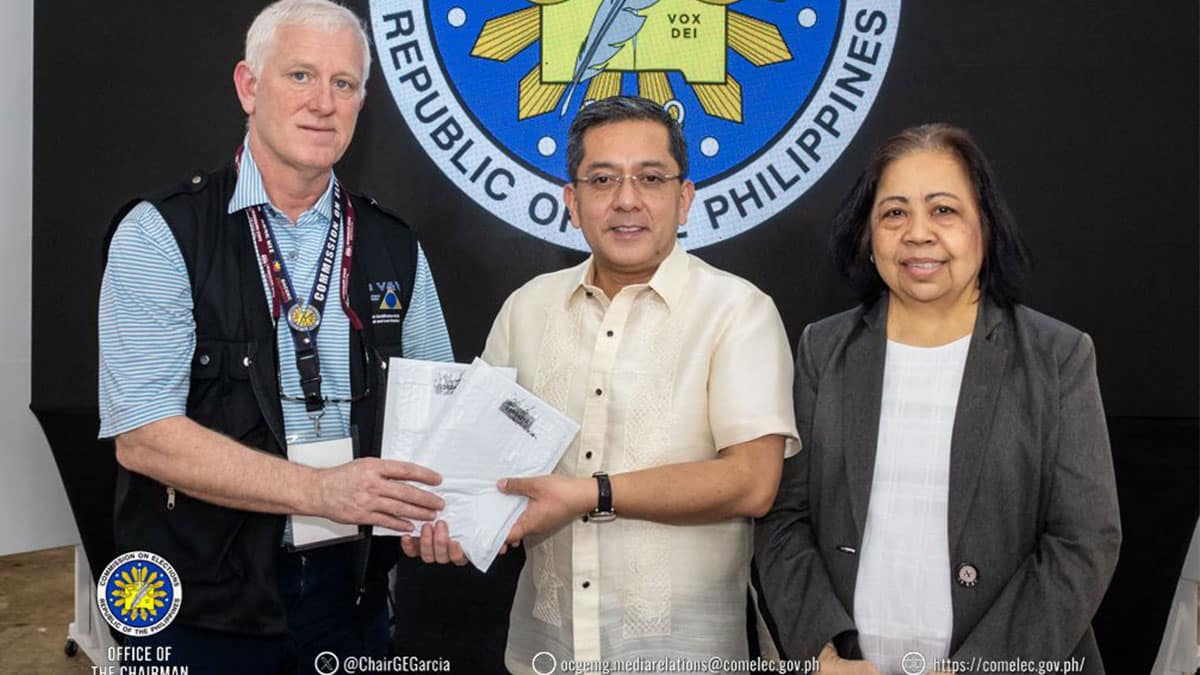Comelec’s system for midterm polls unlikely to get hacked, says US firm

US-based Pro V&V director Jack Cobb (left) hands over the source code for overseas elections to Commission on Elections chair George Erwin Garcia (center) in a turnover ceremony at Palacio del Gobernador in Manila on March 10, 2025. —Photo from the Comelec
MANILA, Philippines — The Commission on Elections (Comelec) transmission system to be used for the upcoming midterm polls is unlikely to get hacked, the president of a United States-based test laboratory said on Monday.
It would be impossible for a lone wolf to hack the Comelec’s system, while it would be tedious and very cumbersome for state actors to do so, according to Jack Cobb, president of Comelec’s international partner firm Pro V&V.
Cobb made this remark as he led the conduct of the trusted build—or the process of assembling the overall program that will govern the entire process—for the overseas voting on Saturday, with the Comelec receiving the source code for overseas voting on Monday.
READ: Comelec on track to obtain certification for automated poll system
“Security is a balance of two different things: time, resources and if you have enough resources and enough time, any security in the world can eventually be broken—it’s just how much time do they have and how many resources,” Cobb said in an interview at Palacio del Gobernador after the turnover of the source code.
READ: Comelec says foreign tech interference in midterm polls unlikely
“If it’s me sitting in my basement, in my pajamas, trying to hack. No, that’s not going to happen. But if you’re somebody like China who has unlimited or a huge amount of resources—now, we still have time on our side because these things are not going to be deployed, but only for a specific amount of time—they don’t have enough time to then learn it,” Cobb said.
“And if they do learn it, the digital keys for the next election will be totally different. The encryption will be totally different, so it’s election to election,” he said.
Cobb further assured that every packet that goes through the entire transmission system is all encrypted.
Furthermore, he said that the data centers themselves have firewalls and intrusion detection systems, the transmissions are also on a separate virtual private networks or VPN that is set up specifically for Comelec, while the cellular providers have set up their own networks for the poll body to use.
Last month, Comelec chairman George Erwin Garcia also said foreign interference through technological means in the upcoming midterm polls is unlikely.
But Garcia said that these foreign actors could still interfere through different means like supporting a candidate financially through indirect means.


















